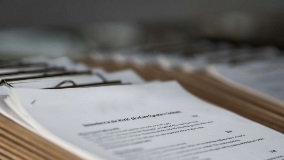
Commercial Tenants and Landlords Beware: Parties should specify the rent consequences when the Force Majeure Clauses are triggered
Commercial Tenants and Landlords Beware: Parties should specify the rent consequences when the Force Majeure Clauses are triggered
In two recent decisions, the Ontario Superior Court considered the parallel issue of whether commercial tenants were required to pay rental arrears during government imposed COVID-19, with opposite outcomes.
In the March 2021 case of Windsor-Essex Catholic District School Board v 231846 Ontario Limited[i] (“Windsor-Essex”), the Court found that the application of the force majeure clause resulted in the tenant’s entitlement to rent abatement.
Conversely, in the September 2021 case of Braebury Development Corporation v Gap (Canada) Inc.[ii] (“Braebury Development”), the Court determined that the application of the force majeure clause did not excuse the tenant from paying rent.
The opposite outcomes in these two cases can be explained by the differences in the leases: whereas the lease in Windsor Essex provided for rent abatement when the force majeure clause was triggered, the lease in Braebury Development, expressly provided that the triggering of a force majeure clause would not excuse the tenant from prompt and timely payment of rent. Consequently, the different results in these two cases can be reconciled by basic principles of contractual interpretation.
Windsor-Essex
In Windsor-Essex, two school board tenants that leased recreational space from the defendant landlord who operated a community sports complex. The tenants’ leases were virtually identical and each contained a force majeure clause which excused the parties from performing certain terms or acts under the lease if the party was delayed or hindered in or prevented from such performance by inter alia “restrictive governmental laws or regulations…or other reason whether of a like nature or not”. In stark contrast to the Braebury Development decision described below, each lease also contained a clause stating that “there shall be an abatement of rent and additional rent if the force majeure provisions of [the force majeure clause] are applicable…”
From March 17, 2020 to August 11, 2020, the tenants were unable to use their respective leased premises as they intended due to “lockdowns” ordered by various levels of government impacting the Windsor-Essex County area. Both school boards paid rent to the landlord at the beginning of the “lockdown” period, but subsequently provided notice to the landlord that rent was abated pursuant to the force majeure clause and ceased to pay rent for the remainder of the “lockdown”.
The Court found that the closure of businesses and facilities in response to the COVID-19 pandemic during the above-noted “lockdown” period was a force majeure event. This event prevented the landlord from providing the leased premises for its contracted use and the landlord was therefore unable to comply with a term of the lease. Thus, the Court found, that (a) the landlord was excused from its contractual obligation to provide the leased space to the school boards, and (b) the tenants’ were excused from paying rent during the aforementioned “lockdown” period.
The Court’s analysis in Windsor-Essex did not include any discussion on the doctrine of frustration as the lease provided the tenant with a complete contractual remedy such that it was unnecessary for the tenant to rely on frustration.
Braebury Development
In Braebury Development, the defendant tenant operated a retail store in premises leased from the plaintiff landlord. The parties’ lease contained a force majeure clause which excused the parties from certain obligations under the lease if the party was prevented from performing such obligations or hindered by “restrictive governmental laws or regulations” or other reason “of a like nature” beyond the party’s control. However, the clause specifically stated that the triggering of the force majeure clause would not excuse the tenant from prompt and timely payment of rent.
From March 24, 2020 until May 19, 2020, the Government of Ontario required all non-essential businesses to close to limit the spread of COVID-19. The tenant failed to pay any rent for April or May 2020, and paid part of the rent for the months from June until September 2020.
The Court held that the force majeure clause was triggered by the government’s COVID-19 restrictions as they constituted restrictive governmental laws or regulations. This meant that both parties were excused from obligations under the lease, except that the tenant was not excused from prompt and timely payment of rent.
The Court also held that the presence of the force majeure clause clearly showed that the parties contemplated situations where the performance obligations would be impacted due to circumstances outside of the parties’ control. Therefore, the doctrine of frustration could not apply.
Key Takeaways
These cases establish that the government’s COVID-19 restrictions which were promulgated in 2020 will likely constitute “restrictive governmental laws or regulations” within the meaning of the language commonly used in force majeure commercial leasing clauses. However, it should be remembered that whether an event is considered to be a force majeure event is dependent on the specific language of the force majeure clause and whether that clause actually hinders or prevents the party from complying with the terms of the agreement.
As to the issue of rent abatement during the force majeure period, since these two cases turned on the express terms of the lease, arms-length parties negotiating their commercial leases should ensure they turn their mind to and expressly provide for the consequences in circumstances where the force majeure clause is triggered. The language in Braebury Development is the commercial norm; however, in the last few years, we have seen a slight shift in that tenants with sufficient negotiating power are able to carve out certain events (such as pandemic or government restrictions) as force majeure events which would permit an abatement of rent.
Lastly, as regards to the doctrine of frustration of contract, these cases indicate that the doctrine does not apply where force majeure consequences are contemplated by the parties, as was the case in Braebury Development. This is because the doctrine of frustration of contract applies where there is an unforeseen event that renders the contract impossible to perform. Even without a force majeure clause, going forward, it will be difficult to claim that COVID-19 is an unforeseen event for any contracts entered into since the pandemic began.
For further information or if you are concerned about your rent payment responsibilities/rights under a commercial lease, please do not hesitate to contact a member of Robin Appleby’s real estate or litigation team.
This article was co-authored by Partner Ellad Gersh & Lawyer Joseph Jamil from the Litigation department, Lawyer Rachel Puma from the Commercial Real Estate department along with Articling Student Erran Lee.
[i] Windsor-Essex Catholic District School Board v231846 Ontario Limited, 2021 ONSC 3040.
[ii] Braebury Development Corporation v Gap (Canada) Inc, 2021 ONSC 6210.

/joseph-jamil.tmb-0.jpg?sfvrsn=eeef918c_2)
/rahcel-puma---bio.tmb-0.jpg?sfvrsn=730f4e08_2)



.tmb-0.jpg?sfvrsn=65b1a474_1)
.tmb-0.png?sfvrsn=69bc5944_1)
